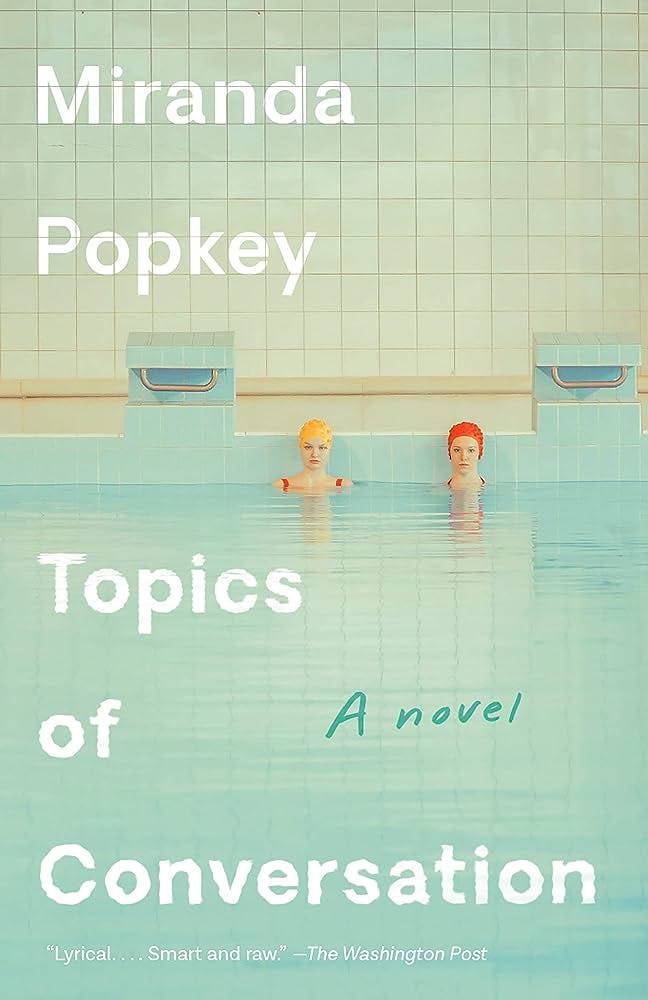Extra Ketchup
Miranda Popkey's Topics of Conversation
There’s something profoundly upsetting about finishing a book, having cried throughout at the way it resonated, reified, read me, and discovering that literally thousands of people have described it, scoffingly, as “pretentious,” “unlikable,” “boring.” That some readers’ tears were not tears of recognition but tears of boredom.
Yes, I can see the ways I might be perceived as pretentious, unlikable, and boring. And this revelation heaped onto months of bone-aching loneliness and brain-addling mania and lung-burning desperation left me sitting in a no-less-painful resignation: This must be why.
People don’t like this kind of book, this kind of woman.
And I am, for all my affected charm, for my easy laugh and sparkling attention, this kind of woman.
I wondered (am still wondering) whether to add this book to my dearly beloved “Dirtbag Women” bibliography, but I stopped short, because unlike many of those other titles with unlikeable female characters, these didn’t seem wantonly so. Rather, they felt to me imperfect, sure, but sharp and libidinous and abused but fumbling for autonomy in a way that was not often cruel or selfish as you might have expected (or even desired). So to read these reviews, so certain of the foulness and unacceptability of these women, actually surprised and upset me.
This is to say, I’ve taken these 1-star reviews personally in a way I never have the ones on my own book.
I gave up trying to appear smart or be an intellectual ages ago. So this is not, as one reviewer suggested, about being superior or condescending to those who did not connect with the book. Neither is it about asserting myself as unique in my literary aesthetic or taste in art or whatever (indeed many of the conversations in the book reveal that such “specialness” is of course shared among these kinds of women, though we aren’t supposed to speak of it).
I guess what I’m getting at is that the kind of people who would give this book a 1-star review are probably 1) Dumb, which is fine. There is truly no shame in not getting it. 2) A kind of Woke Liberal™ who is allergic to nuance and complexity, which is fine in its own way, I suppose. Its own kind of not-getting-it. or 3) Just not my kind of person, which is also fine.
Anyway, if you are my kind of person, I highly recommend Miranda Popkey’s Topics of Conversation. It’s a novel made up of short stories, conversations primarily between women, that follow the narrator from the summer after college through friendships, marriages, affairs, children, all the narratives of life that are not actually narratives (truly, the reviewers who lamented the “lack” of plot simply did not, could not, discern it, apparently). It’s incisive and honest and (I hate this word used in this way, but I can’t think of anything better) raw. I don’t know that I would call it inventive. Or life-changing. But I did find it engaging and moving and good.
Maybe what’s at the bottom of my emotional reaction to these negative reviews, beyond a sense that I have been so reviewed, is a sense of envy. I envy the women who didn’t get it, who were bored by it, who didn’t see themselves splayed naked on its pages. I hope they feel lucky to not be the right fit for this book. They are lucky to not be this kind of woman.


